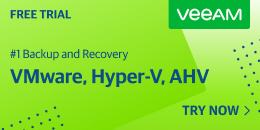Selecting a virtualization hypervisor begins with an important choice: Do you need a hosted or bare-metal hypervisor? Once you decide which type of hypervisor you need, there are lots of factors to consider.
You want a virtualization hypervisor that’s compatible with your hardware, allows for simple management and gives you the performance your virtual infrastructure needs. You should also consider high availability, reliability and scalability. And of course, look into costs.
Here are eight considerations for choosing a virtualization hypervisor:
Performance
If you want high performance, a bare-metal virtualization hypervisor is really your only option. Bare-metal virtualization offers the least amount of resource overhead. Bare-metal virtualization hypervisors also have advanced resource controls that allow you to guarantee, prioritize and limit virtual machine (VM) resource usage.
Hosted hypervisors typically have no or limited resource controls, so VMs have to fight each other for resources. Unlike bare-metal virtualization, hosted hypervisors often have steep resource-overhead penalties, especially when operating system services, tools and applications are running on the guest operating system.
Read the full article at searchservervirtualization.com…



